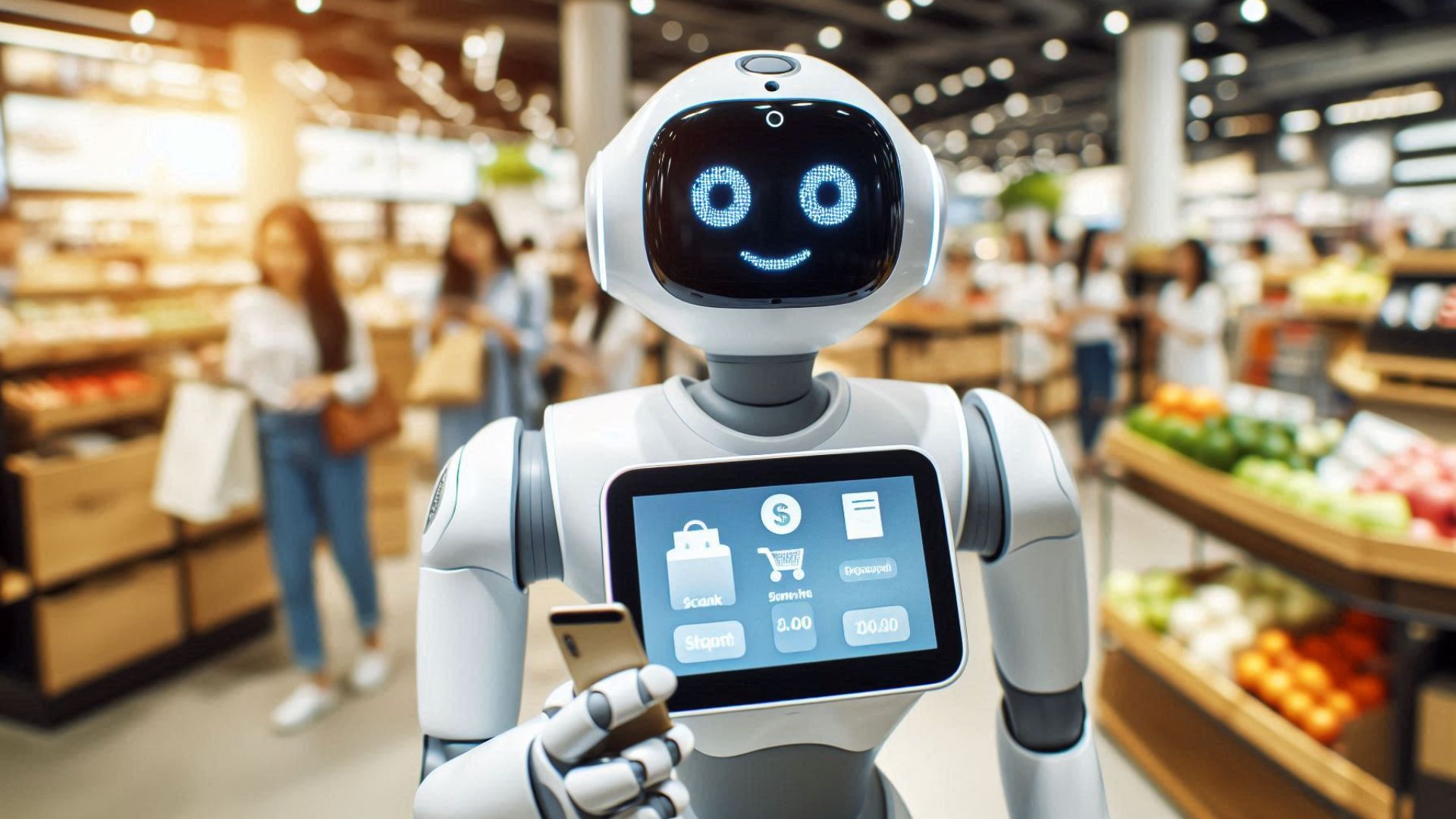AI is already presenting itself as a lucrative business application for the retail and CPG ecosystem. AI technology applications combined with other allied technologies such as IoT and computer Vision, is enabling businesses to take control of their processes, boost effectiveness and drive efficiency. The global AI in retail market is projected to grow significantly, with a Compound Annual Growth Rate (CAGR) of 29.9%, expected to reach USD 127.2 billion by 2033 from USD 9.3 billion in 2023. With AI playing such a critical role, modern retail is no longer just about stocking products but involves delivering personalized experiences and optimizing operations. This article will explore how AI technology is driving the transformation in modern retail, its benefits, and the challenges associated with its adoption.
Changing Consumer Behavior and Retailer Adaptations
Today’s consumers expect more from brands, including convenience, personalization, and sustainability. Retailers must adapt to these expectations by embracing year-round promotions and longer product seasonality to stay relevant. AI enables retailers to predict consumer trends by analyzing purchase history, social media sentiment, and market behavior. According to EY’s survey, 87% of retailers reported AI-enhanced the customer experience, demonstrating its impact on understanding customer needs.
For instance, AI helps retailers predict spikes in demand for seasonal products, such as summer clothing or holiday decor, enabling timely promotions and stock management. This predictive capability allows retailers to optimize product availability and personalize shopping experiences, keeping customers engaged and loyal.
Also read: Overcoming Store Execution Challenges with Retail Execution Solutions
With consumer preferences constantly shifting, AI tools enable retailers to respond to changes quickly. Next, we’ll explore some AI-powered tools that are helping to build modern retail.
AI-Powered Tools in Retail
AI-powered tools have revolutionized how retailers operate, offering more personalized and efficient shopping experiences. Bath & Body Works launched an AI-powered fragrance finder that personalizes recommendations based on customer preferences. AI-powered solutions like this improve the overall shopping experience by tailoring recommendations to individual tastes.
Additionally, virtual fitting rooms and personalized styling advice have gained popularity, allowing customers to visualize how products will look without needing to try them on. For example, Zara and ASOS have integrated AI-driven virtual stylists that recommend outfits based on customer preferences, making the shopping experience interactive and convenient.
AI is also enhancing inventory management & monitoring through smart shelves, which use sensors & cameras to track stock levels in real-time. This helps ensure that popular items are always available and reduces the risk of overstocking, thereby improving efficiency and customer satisfaction.
As AI tools continue to enhance retail operations, let’s move to how AI improves the customer experience.
Enhancing Customer Experience with AI
In modern retail, shopper experience is everything, and AI plays a key role in meeting this expectation. Chatbots and virtual assistants have become common across retail websites, providing real-time customer support. Retailers like H&M and Sephora use AI chatbots to assist customers with inquiries, track orders, and offer product recommendations. This 24/7 support enhances customer satisfaction and reduces response times.
Beyond customer support, AI analyzes customer feedback from reviews, social media, and post-purchase surveys. This real-time data allows retailers to make quick adjustments to their product offerings based on customer preferences, leading to improved satisfaction and loyalty.
AI also drives personalized marketing campaigns, helping retailers tailor their messaging based on consumer behavior. For example, a fitness enthusiast may receive AI-powered email promotions for the latest workout gear. This level of personalization leads to higher engagement and conversion rates, enhancing the overall customer journey.
While AI dramatically improves customer experiences, it also optimizes the retail supply chain.
AI in Supply Chain Optimization
The retail supply chain is a critical component of business operations, and AI plays a vital role in optimizing it. AI-powered predictive analytics allows businesses to forecast demand with greater accuracy, preventing stockouts and excess inventory. According to EY, 76% of retailers reported AI-optimized supply chains, ensuring smoother operations.
AI is also streamlining supply chain logistics by analyzing data such as weather conditions and market trends to optimize shipping routes. This reduces delivery times and costs, improving overall efficiency. Real-time inventory management driven by AI ensures that stock levels are monitored, and necessary adjustments are made instantly. This level of precision minimizes waste and improves profitability.
As AI helps streamline supply chains, its ability to analyze data is also transforming retail operations.
AI in Retail Data Analysis
Data is crucial in the world of modern retail. AI allows retailers to leverage big data for insights into customer behavior, market trends, and product performance. AI processes these large datasets quickly, enabling businesses to make informed decisions that enhance operations.
Retailers also use AI for customer segmentation and targeting. By analyzing purchasing patterns and demographics, AI identifies groups of customers with similar behaviors, enabling personalized marketing campaigns. This data-driven approach ensures that marketing efforts resonate with the right audience, driving sales and improving customer engagement.
Furthermore, AI enhances in-store experiences by suggesting real-time changes to product layouts, helping retailers maximize sales potential. For example, AI can recommend moving high-demand items to more visible locations during peak hours, improving customer flow and boosting sales.
Also read: Realtime Retail Analytics for Improved Retail Execution
Despite its many benefits, implementing AI in retail comes with challenges.
Challenges in Implementing AI in Retail
While AI offers transformative potential for retail, its implementation comes with several challenges that retailers must address to ensure success. From data privacy concerns to system integration issues, overcoming these obstacles is key to unlocking AI's full potential.
- Data Privacy Concerns
Data privacy is a critical issue as retailers must comply with strict regulations to protect customer information. Mishandling sensitive data can erode customer trust, making responsible data practices essential.
- Ensuring Unbiased AI Algorithms
AI systems can perpetuate biases if trained on skewed data, leading to unfair or inaccurate results. Retailers must regularly audit their AI models to ensure they produce fair, unbiased outcomes.
- Integrating AI with Legacy Systems
Many retailers operate on outdated systems that aren't compatible with modern AI technologies. Upgrading infrastructure and training staff to use AI tools are crucial steps for a smooth transition and successful implementation.
Despite these challenges, the future of AI in retail looks promising.
Future Trends in Retail AI Technology
Looking ahead, AI’s role in predictive analytics will continue to grow, offering even more precise insights into consumer behavior. This will allow retailers to make smarter decisions around product development and marketing strategies.
We can also expect further expansion of AI-driven personalized shopping experiences. Virtual fitting rooms, product recommendations, and personalized marketing will continue to evolve, creating immersive and tailored customer journeys.
Lastly, AI will play a key role in sustainable retail practices. By optimizing supply chains and reducing waste, AI can help retailers meet growing consumer demand for eco-friendly products.
Also read: Future of Automation in Retail: Efficiency and Customer Satisfaction
Conclusion
AI is revolutionizing modern retail by transforming how businesses operate and engage with customers. From optimizing supply chains to personalizing shopping experiences, AI technology is essential for staying competitive in today’s retail landscape. As AI continues to evolve, it will offer retailers even more opportunities for innovation and growth.
Explore how ParallelDots' AI-powered solutions can help you optimize your retail operations and deliver personalized customer experiences. Book a demo today!


